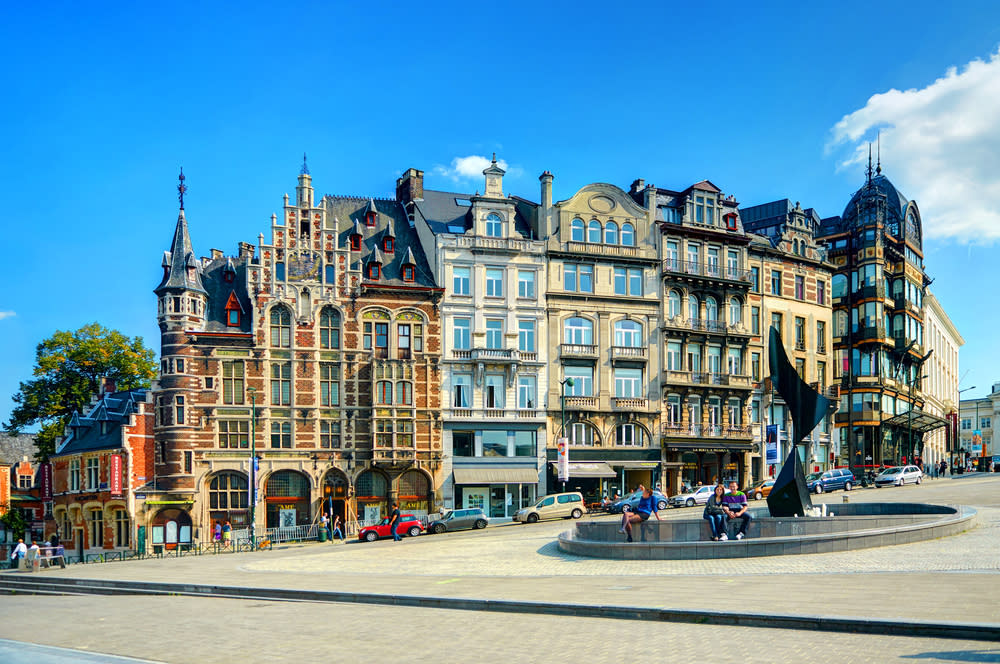More from Brussels
Main Menu
- 00:00
- 06:00
- 12:00
- 18:00
- 23:00
Brussels : Next 24-Hour Weather
Today - 15th April 2025
Sunrise 06:48
Sunset 20:38
Tomorrow - 16th April 2025
Sunrise 06:48
Sunset 20:38
Holiday Weather Now
Sorted by popularity:
Updated at 20:00 GMT
-
Temp feels like13°C56°F
-
Length of day13h 50m
-
Pressure29" (1000 hpa)
-
Visibility10 km (6miles)
-
Wind speed16 km/h
Sunrise 06:48
Sunset 20:38
-
Temp feels like:
13ºC (56 ºF)
-
Length of day:
13h 50m
-
Pressure:
29" (1000 hpa)
-
Visibility:
6 miles (10 km)
-
Wind speed:
16 km/h
Weather Brussels
Brussels, the capital of Belgium, has a standard temperate climate. Summers are warm and winters chilly and rainfall may occur at any time of year. There are four distinct seasons and a marked difference between summer and winter. Annual rainfall averages a bit over 600mm a year, which is not particularly high although showers are quite frequent.
Summer
Summer in Brussels generally enjoys warm temperatures, and it can occasionally get hot during summer heat waves. The peak summer months are July and August which see daytime highs in the low to mid-20s. Night time lows tend to stay in the low teens and above.
During a summer heat wave you can see temperatures rise into the high 20s and 30s and the good weather can last for a few weeks in succession. August usually sees the hottest temperatures.
Rainfall is moderate in summer, and you should expect to see showers at any time. Showers can arrive quickly and unexpectedly and the summer months see 50-60mm average rainfall.
Although summer sees as much or more rainfall than the rest of the year, it generally falls in shorter heavier showers so there are in fact less rainy days and more sunshine than the other seasons. June and July see a good 8 hours of sunshine per day on average.
Autumn
Due to the large difference between summer and winter weather, autumn is a season of big change. The city can look splendid during a sunny autumn day with the golden leaves glistening on the trees.
September still enjoys good temperatures with daily highs often up towards 20C. From October though it quickly starts to cool and average temperatures drop from 15C in September to 11C in October and down to 6C in November.
September enjoys 6 hours a day of sunshine and rainfall is around 50mm, but by November sunshine is just 2 hours per day - though remember a lot of this is down to the rapidly shortening days.
While the volume of rain only rises a little during autumn, the frequency of grey drizzly days increases noticeably. With the nights drawing in early in late autumn it can feel a bit cold and dark.
Winter
Winter weather can get quite cold in Brussels. In December and January temperatures average just 3C. At this time lows generally hover just above freezing and highs donât climb much above 5C.
Rainfall is at its standard level of 50-60mm but the increase of grey drizzly days and the decrease in daylight hours can give a gloomy feel.
Freezing temperatures and snowfall can occur in the city sometimes but the âurban heat island effectâ means the city is often a couple of degrees warmer than areas lacking in numerous heated buildings and motor vehicles. A sunny crisp winters day with a dusting of snow is a beautiful sight in Brussels however.
Spring
The winter weather quickly yields itself to warmer sunnier days during spring. Come March daytime temperatures once again move into double figures, although nights can still be cold.
From March to May the average temperature almost doubles from 7C to 13C. May can see the first of the summer weather and daily highs can get up towards 20C.
Spring is the driest time of year, especially late spring. April has the lowest average rainfall with less than 40mm and May sees about 45mm.
May begins to see a lot of sunshine too, with 7 hours per day on average.
The weather can certainly vary from year to year and the weather averages only tell part of the story. Things can vary from year to year; for example you may get a particularly mild winter, or a very wet summer, or a very hot and dry one.

















